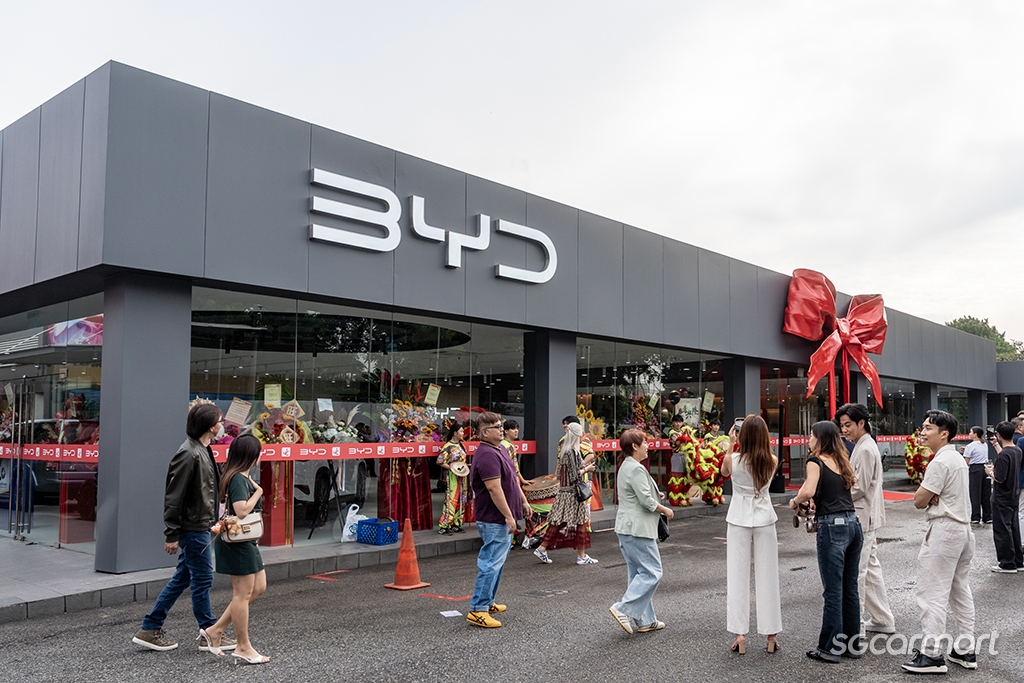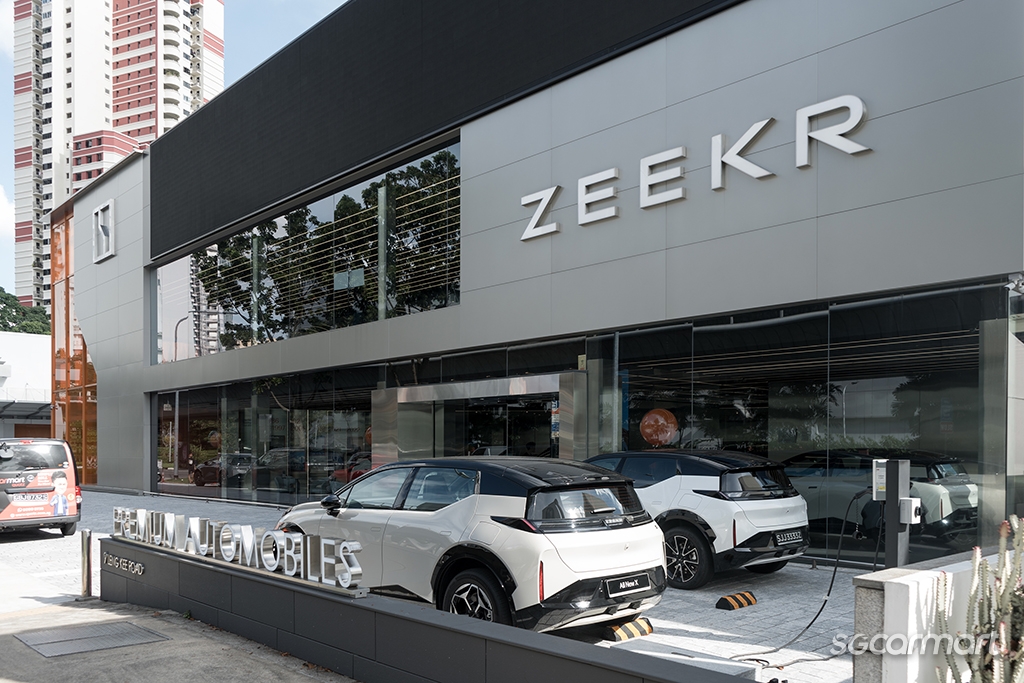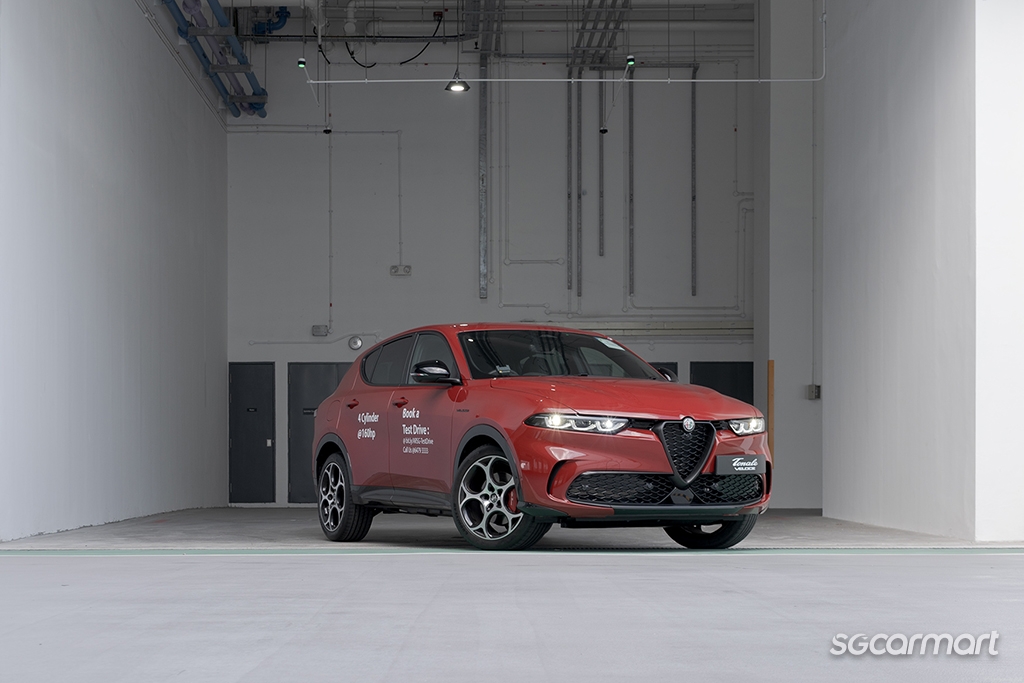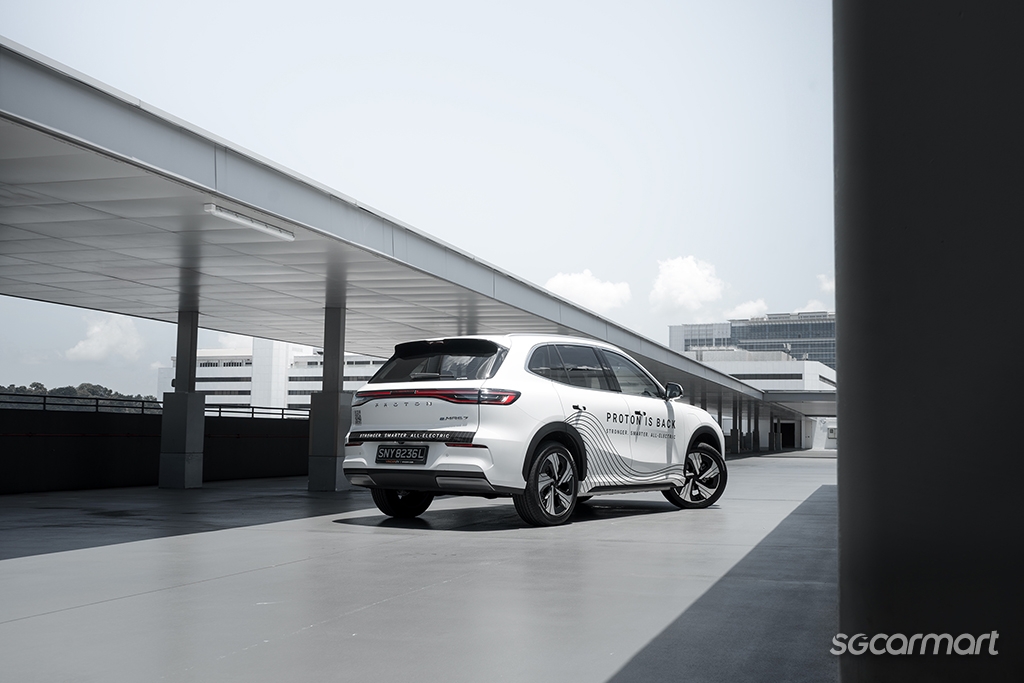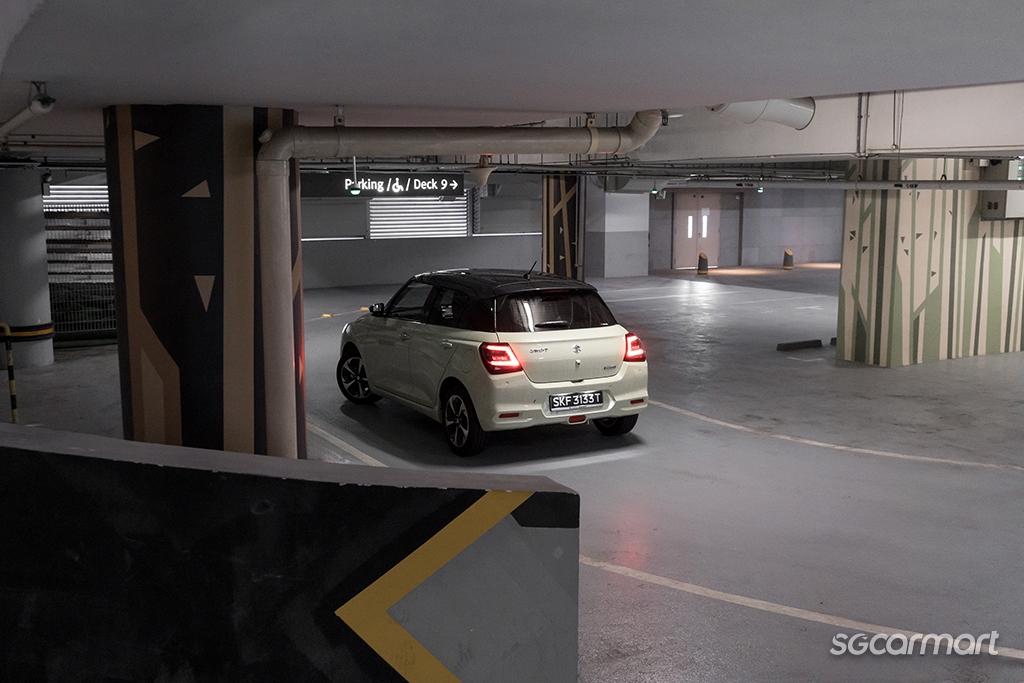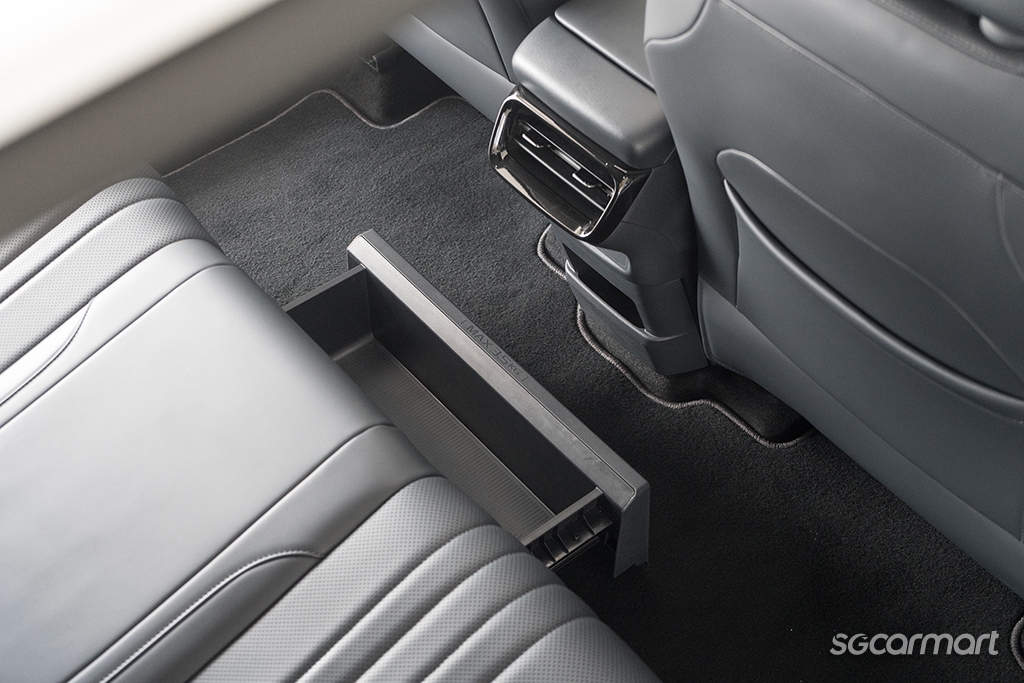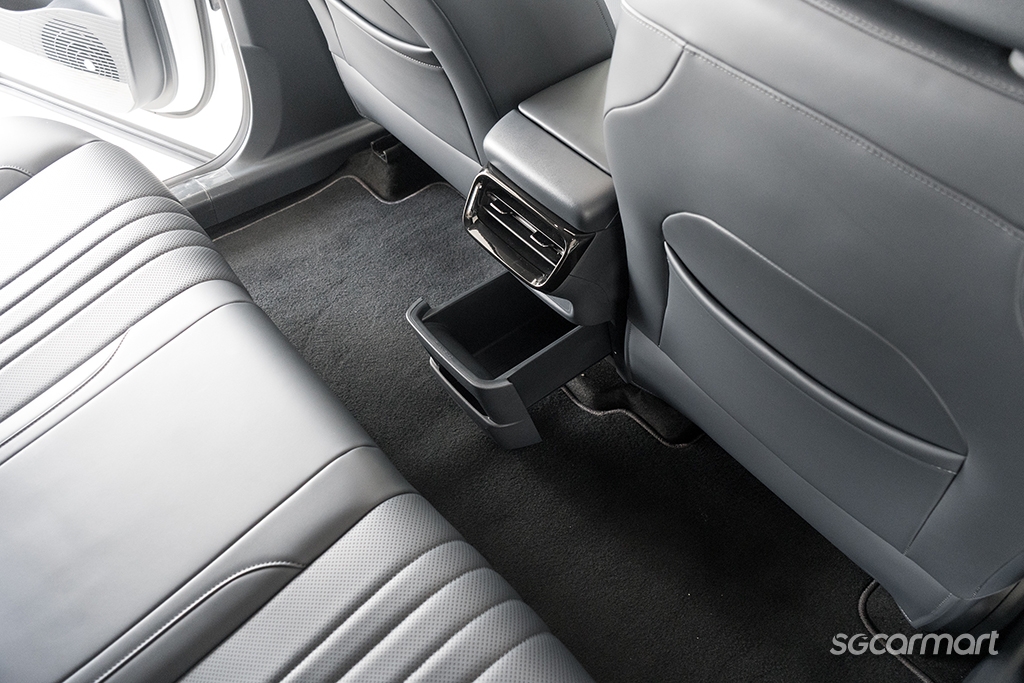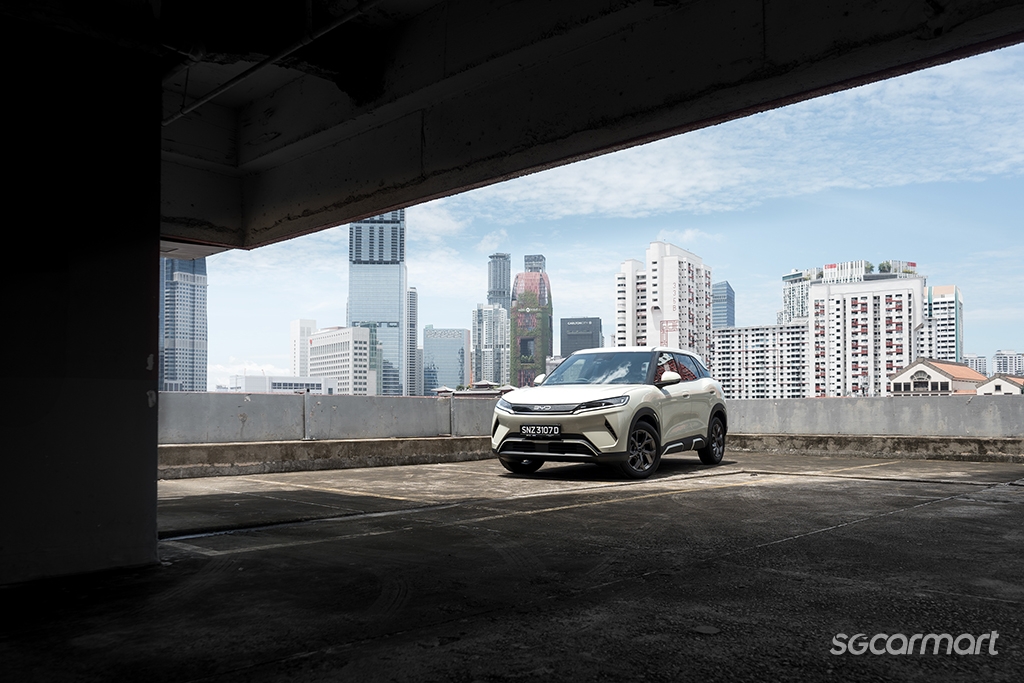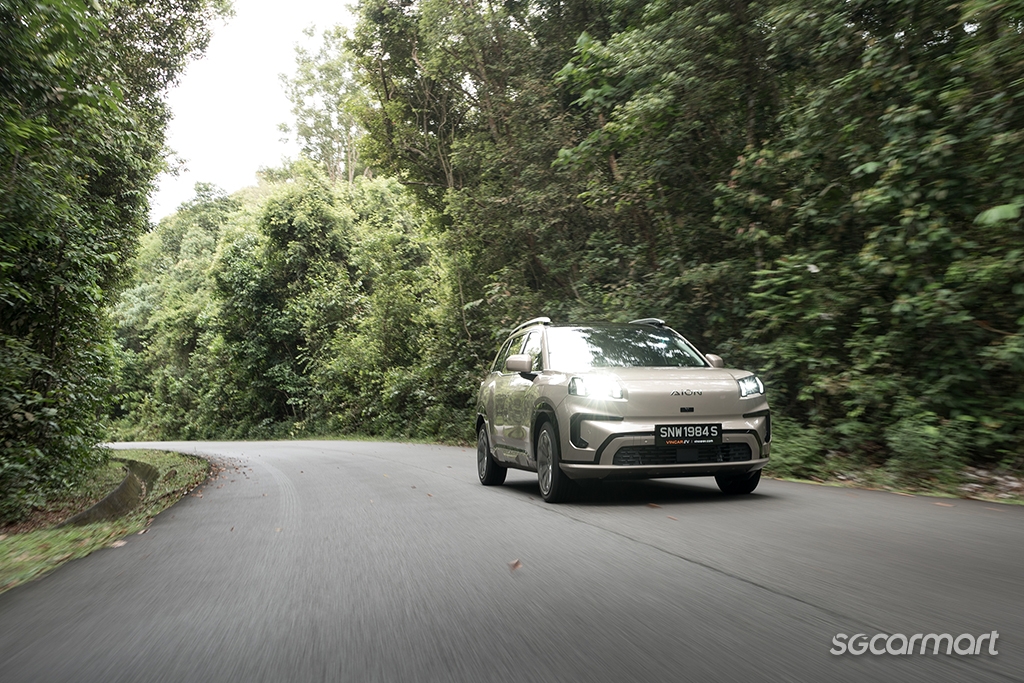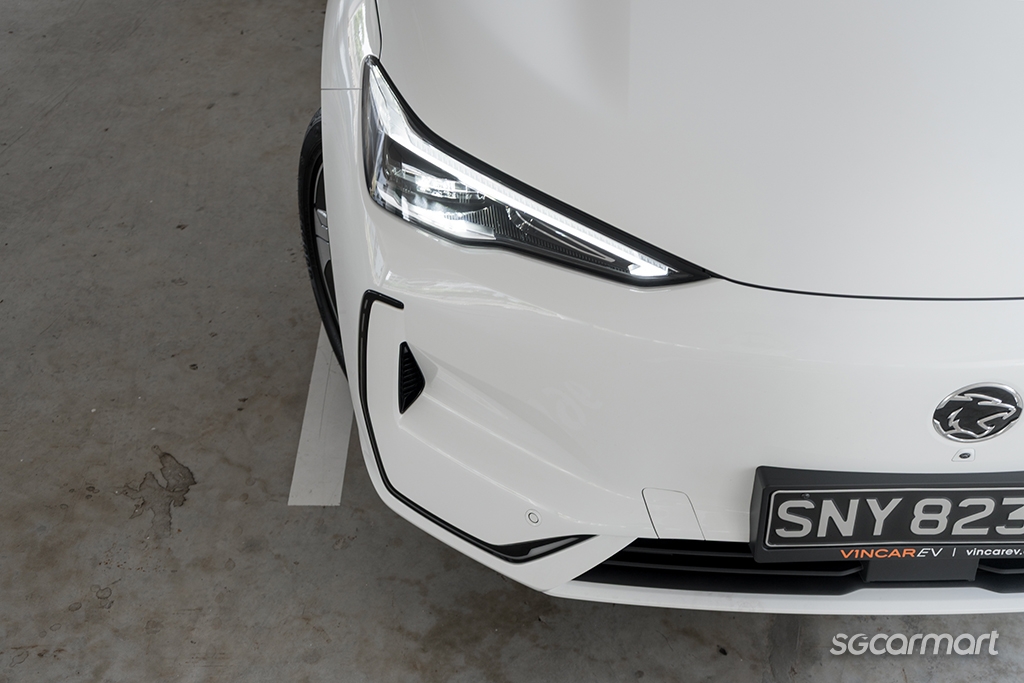Is Proton here to stay?
22 Sep 2025|3,622 views
If you haven't heard, Proton has officially returned to Singapore.
And it's returning here with a new electric car, marking nearly a year after it first announced that it appointed VINCAR as its authorised distributor and a decade since its listings were last available on our website.
Things have obviously changed since the firm was pushing out models such as the Savvy and the Saga - a time that saw it chugging along with shared technological inputs from Toyota and its subsidiary, Daihatsu (alongside the occasional contribution from Mitsubishi).
But in some ways, things have stayed the same. This new Proton arriving on our shores still comes as the product of a collaboration with a foreign brand, although this time it's not with the Japanese, but with China-based Geely Group.
And that brings us neatly into the question on everyone's mind: Will history repeat itself? The Malaysian marques have not seen much success here on our island, but will this new electrified Proton buck the trend?
Singaporeans have proven receptive to products from the new Chinese brands here, but will the same apply to a brand so inextricably linked to Malaysia?
1. Consumer biases here are changing, but…
One trend pointing in favour of Proton's success is the simple fact that Singaporean car buyers have proven more receptive to products from new marques.
LTA's data for the first half of 2025 informs that recent entrants to our market, including Zeekr, MG, Dongfeng and VINCAR-distributed GAC Aion itself, have all made considerable inroads here, racking up sales figures here that are enough to give our island's more established brands some pause. And then there's BYD's spectacular rise, just three years since it started offering the Atto 3 here.
All this points in favour to local reception of the retuning Proton brand, but some caveat must be made here: What we have observed could simply be a growth in reception to Chinese products, as opposed to options from new brands in general.
This new Proton e.MAS 7 is underpinned by a Geely Group (that is, Chinese) platform, but there's no escaping the fact that many here still consider the Proton name as inextricably linked to Malaysia.
And we think it's quite safe to say that the prestige and perceived quality of Chinese manufactured products has risen in the past years, aided no doubt by the growing presence of names including Xiaomi and Huawei.
But whether the prestige of Malaysian products have seen a similar growth is doubtful. So, there's really no saying as to whether Singaporeans will warm to the Proton e.MAS 7 in the same way that they have done to these Chinese products.
And don't imagine that Singaporeans here are entirely willing to forgo their prejudices - the exit of brands such as Alfa Romeo and Fiat from our market, both after seeing periods of weak sales figures, serves as a reminder that customers here have little appetite for products from brands not held in high regard.
2. Demand for electric cars is growing, but…
Then there's also the changing climate around electric vehicles here.
Sales of electric cars are no doubt growing here in Singapore: According to The Straits Times, electric vehicles here accounted for 40.2% of total car registrations in the first three months of 2025. This compares favourably against the 33.6% share that electric vehicles took in all of 2024, and the 18.1% share in 2023.
This certainly puts the new all-electric Proton e.MAS 7 in good stead here.
But being in a growing market sector isn't all there is to long-term survival: Consider the fact that electric cars could see some new challenges in the coming years.
The LTA has already announced that the ARF rebate from the EV Early Adoption Incentive is set to be capped at $7,500 as we enter 2026, down from the $15,000 cap as of 2025. And this incentive is set to cease after 2026.
There has also been changes announced to the VES rebates, with those for vehicles that fall within Band A1 (or soon to be known simply as Band A, where most all-electric vehicles will fall) also being dropped, from $25,000 to $22,500 for 2026, and set to stand at $20,000 through the year 2027.
These changes, it can be argued, will have only a small effect on affordability, especially at a time when the most affordable electric vehicles are asking upwards of $180,000, COE inclusive.
But we also take these most recent changes as a sign that the government has seen the growth of all-electric options here and is moving to withdraw incentives originally intended to support early adopters, and surrender an increasing role to market forces when it comes to the deciding the ideal combustion/electric split.
Thus, the affordability of Proton's products (e.MAS 7 included) down the line, we'd argue, cannot necessarily be extrapolated from its success in the coming months. Industry experts agree that there are still manufacturing cost savings to be made when it comes to the production electric cars, but the adjustments to incentives offered both locally and even abroad could still push Proton's positioning vis-a-vis combustion and even plug-in hybrid options in a different direction, at least in the few years ahead.
In short, we won't be counting the success of the all-electric marques in the coming two years to be necessarily indicative of where the market will be heading beyond 2027.
The Proton e.MAS 7 offers plenty for its price, but…
And if we look closer to the present day, there's also the unavoidable fact that the e.MAS 7 will be wading into what is now a hotly contested segment.
The Proton e.MAS 7 is launching here at a price that's nearly $180,000. And to be clear, at this price, it has plenty going for it.
Consider, for example, the fact that it offers a total of 160kW of power: More than what similarly priced options such as the Aion Y Plus or the BYD Atto 2 can muster, despite having the advantage of being able to be registered here with a Cat A COE.
And then there's the fact that the e.MAS impressed with its host of storage options when we drove it - a feature that should curry it favour amongst families here in Singapore. Did I mention the generous knee room available in the second row?
There's plenty of attractive rivals all ready to fight for market share at the price point of the Proton e.MAS 7
But here's the thing: Those shopping for a practical commuter for the family only need to take a few steps from the Proton showroom to find another serious contender at a similar price - the Aion V. Decked out with plenty of rear leg and knee room, and even a fridge and massage seats if you opt for it in its 'Luxury' trim, the Aion V offers plenty of equipment that are also designed to woo families looking for a competitively priced product. It even has some adventure-ready styling to tug at the heartstrings of the sensible man/woman.
And then there's no denying the fact that BYD's dealers here should be able to translate the momentum already generated by the Atto 2's larger stablemates into sales of the model itself. You'll note that we found it more appealing a product than the larger and more expensive (and incredibly popular here in Singapore, mind) Atto 3 when we drove it ourselves.
Is Proton here to stay?
So, will this new Proton e.MAS find success here in Singapore? We think the brand will need some time before it gains any serious traction here, though this moment seems as ripe as any for the brand to gain new-found success.
To imagine that it will not have to navigate considerable headwinds owing to its new all-electric branding and its Chinese backing would be taking too simplistic a view on affairs. In Proton's favour, VINCAR already has considerable experience operating here in Singapore and already seen some success since launching its new Aion brand (at least, simply measured by vehicle registrations).
But there's no avoiding the fact that the negative associations of its Malaysian branding and the fact that so many Chinese rivals are so competitive at the e.MAS 7's price point will likely be the brand's inescapable challenge.
We must point out, however, that we found the e.MAS 7 not lacking for refinement or polish when compared against rivals when we drove the car. But this idea that those who choose to sign on the dotted line at the Proton showroom are not getting an inferior product will need plenty of people actually behind the wheel of the car itself, and time for the word to get out and gain acceptance.
After all, Singaporeans are a discerning bunch when it comes to our cars. After all, isn't there a popular saying that goes: Those who cannot remember the past condemned to repeat it?
If you haven't heard, Proton has officially returned to Singapore.
And it's returning here with a new electric car, marking nearly a year after it first announced that it appointed VINCAR as its authorised distributor and a decade since its listings were last available on our website.
Things have obviously changed since the firm was pushing out models such as the Savvy and the Saga - a time that saw it chugging along with shared technological inputs from Toyota and its subsidiary, Daihatsu (alongside the occasional contribution from Mitsubishi).
But in some ways, things have stayed the same. This new Proton arriving on our shores still comes as the product of a collaboration with a foreign brand, although this time it's not with the Japanese, but with China-based Geely Group.
And that brings us neatly into the question on everyone's mind: Will history repeat itself? The Malaysian marques have not seen much success here on our island, but will this new electrified Proton buck the trend?
Singaporeans have proven receptive to products from the new Chinese brands here, but will the same apply to a brand so inextricably linked to Malaysia?
1. Consumer biases here are changing, but…
One trend pointing in favour of Proton's success is the simple fact that Singaporean car buyers have proven more receptive to products from new marques.
LTA's data for the first half of 2025 informs that recent entrants to our market, including Zeekr, MG, Dongfeng and VINCAR-distributed GAC Aion itself, have all made considerable inroads here, racking up sales figures here that are enough to give our island's more established brands some pause. And then there's BYD's spectacular rise, just three years since it started offering the Atto 3 here.
All this points in favour to local reception of the retuning Proton brand, but some caveat must be made here: What we have observed could simply be a growth in reception to Chinese products, as opposed to options from new brands in general.
This new Proton e.MAS 7 is underpinned by a Geely Group (that is, Chinese) platform, but there's no escaping the fact that many here still consider the Proton name as inextricably linked to Malaysia.
And we think it's quite safe to say that the prestige and perceived quality of Chinese manufactured products has risen in the past years, aided no doubt by the growing presence of names including Xiaomi and Huawei.
But whether the prestige of Malaysian products have seen a similar growth is doubtful. So, there's really no saying as to whether Singaporeans will warm to the Proton e.MAS 7 in the same way that they have done to these Chinese products.
And don't imagine that Singaporeans here are entirely willing to forgo their prejudices - the exit of brands such as Alfa Romeo and Fiat from our market, both after seeing periods of weak sales figures, serves as a reminder that customers here have little appetite for products from brands not held in high regard.
2. Demand for electric cars is growing, but…
Then there's also the changing climate around electric vehicles here.
Sales of electric cars are no doubt growing here in Singapore: According to The Straits Times, electric vehicles here accounted for 40.2% of total car registrations in the first three months of 2025. This compares favourably against the 33.6% share that electric vehicles took in all of 2024, and the 18.1% share in 2023.
This certainly puts the new all-electric Proton e.MAS 7 in good stead here.
But being in a growing market sector isn't all there is to long-term survival: Consider the fact that electric cars could see some new challenges in the coming years.
The LTA has already announced that the ARF rebate from the EV Early Adoption Incentive is set to be capped at $7,500 as we enter 2026, down from the $15,000 cap as of 2025. And this incentive is set to cease after 2026.
There has also been changes announced to the VES rebates, with those for vehicles that fall within Band A1 (or soon to be known simply as Band A, where most all-electric vehicles will fall) also being dropped, from $25,000 to $22,500 for 2026, and set to stand at $20,000 through the year 2027.
These changes, it can be argued, will have only a small effect on affordability, especially at a time when the most affordable electric vehicles are asking upwards of $180,000, COE inclusive.
But we also take these most recent changes as a sign that the government has seen the growth of all-electric options here and is moving to withdraw incentives originally intended to support early adopters, and surrender an increasing role to market forces when it comes to the deciding the ideal combustion/electric split.
Thus, the affordability of Proton's products (e.MAS 7 included) down the line, we'd argue, cannot necessarily be extrapolated from its success in the coming months. Industry experts agree that there are still manufacturing cost savings to be made when it comes to the production electric cars, but the adjustments to incentives offered both locally and even abroad could still push Proton's positioning vis-a-vis combustion and even plug-in hybrid options in a different direction, at least in the few years ahead.
In short, we won't be counting the success of the all-electric marques in the coming two years to be necessarily indicative of where the market will be heading beyond 2027.
The Proton e.MAS 7 offers plenty for its price, but…
And if we look closer to the present day, there's also the unavoidable fact that the e.MAS 7 will be wading into what is now a hotly contested segment.
The Proton e.MAS 7 is launching here at a price that's nearly $180,000. And to be clear, at this price, it has plenty going for it.
Consider, for example, the fact that it offers a total of 160kW of power: More than what similarly priced options such as the Aion Y Plus or the BYD Atto 2 can muster, despite having the advantage of being able to be registered here with a Cat A COE.
And then there's the fact that the e.MAS impressed with its host of storage options when we drove it - a feature that should curry it favour amongst families here in Singapore. Did I mention the generous knee room available in the second row?
There's plenty of attractive rivals all ready to fight for market share at the price point of the Proton e.MAS 7
But here's the thing: Those shopping for a practical commuter for the family only need to take a few steps from the Proton showroom to find another serious contender at a similar price - the Aion V. Decked out with plenty of rear leg and knee room, and even a fridge and massage seats if you opt for it in its 'Luxury' trim, the Aion V offers plenty of equipment that are also designed to woo families looking for a competitively priced product. It even has some adventure-ready styling to tug at the heartstrings of the sensible man/woman.
And then there's no denying the fact that BYD's dealers here should be able to translate the momentum already generated by the Atto 2's larger stablemates into sales of the model itself. You'll note that we found it more appealing a product than the larger and more expensive (and incredibly popular here in Singapore, mind) Atto 3 when we drove it ourselves.
Is Proton here to stay?
So, will this new Proton e.MAS find success here in Singapore? We think the brand will need some time before it gains any serious traction here, though this moment seems as ripe as any for the brand to gain new-found success.
To imagine that it will not have to navigate considerable headwinds owing to its new all-electric branding and its Chinese backing would be taking too simplistic a view on affairs. In Proton's favour, VINCAR already has considerable experience operating here in Singapore and already seen some success since launching its new Aion brand (at least, simply measured by vehicle registrations).
But there's no avoiding the fact that the negative associations of its Malaysian branding and the fact that so many Chinese rivals are so competitive at the e.MAS 7's price point will likely be the brand's inescapable challenge.
We must point out, however, that we found the e.MAS 7 not lacking for refinement or polish when compared against rivals when we drove the car. But this idea that those who choose to sign on the dotted line at the Proton showroom are not getting an inferior product will need plenty of people actually behind the wheel of the car itself, and time for the word to get out and gain acceptance.
After all, Singaporeans are a discerning bunch when it comes to our cars. After all, isn't there a popular saying that goes: Those who cannot remember the past condemned to repeat it?
Thank You For Your Subscription.











